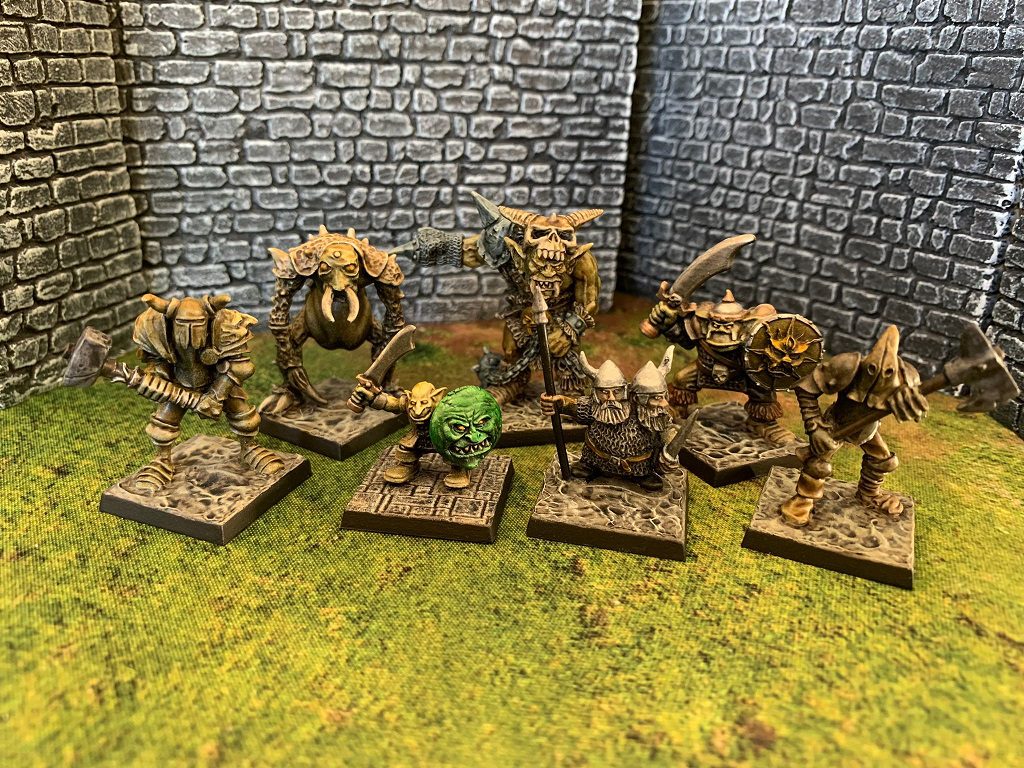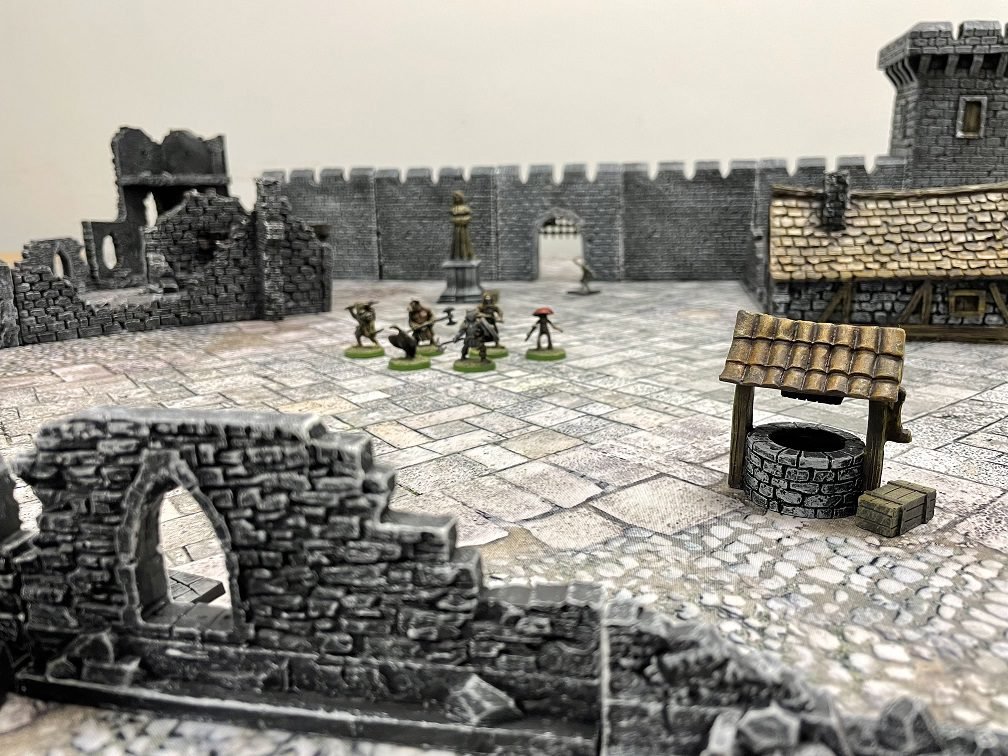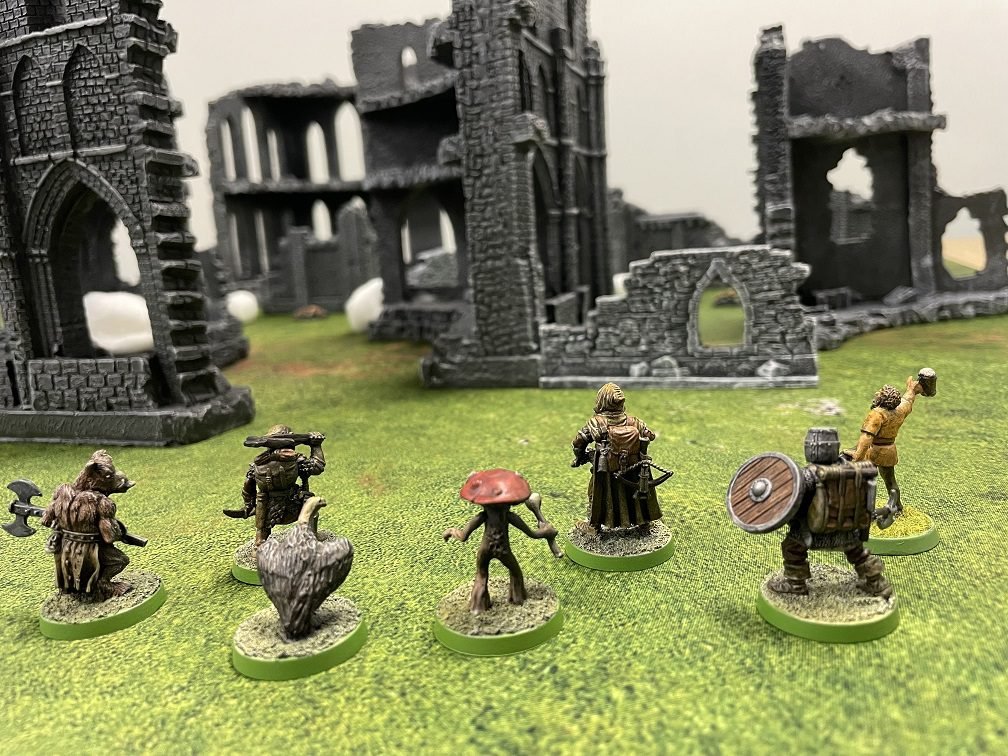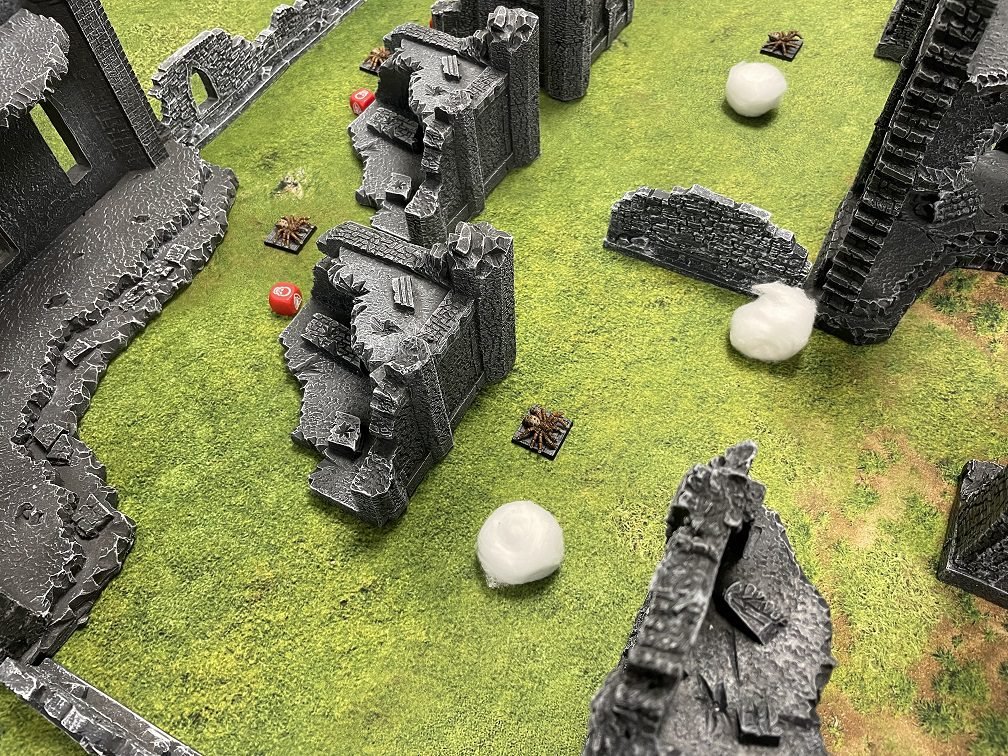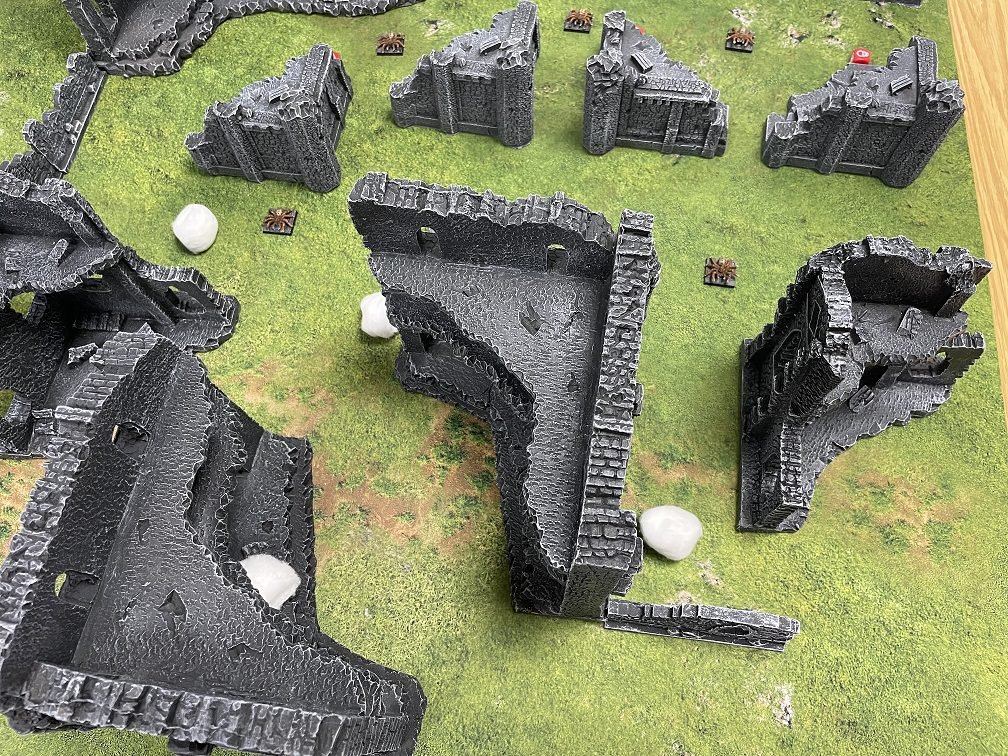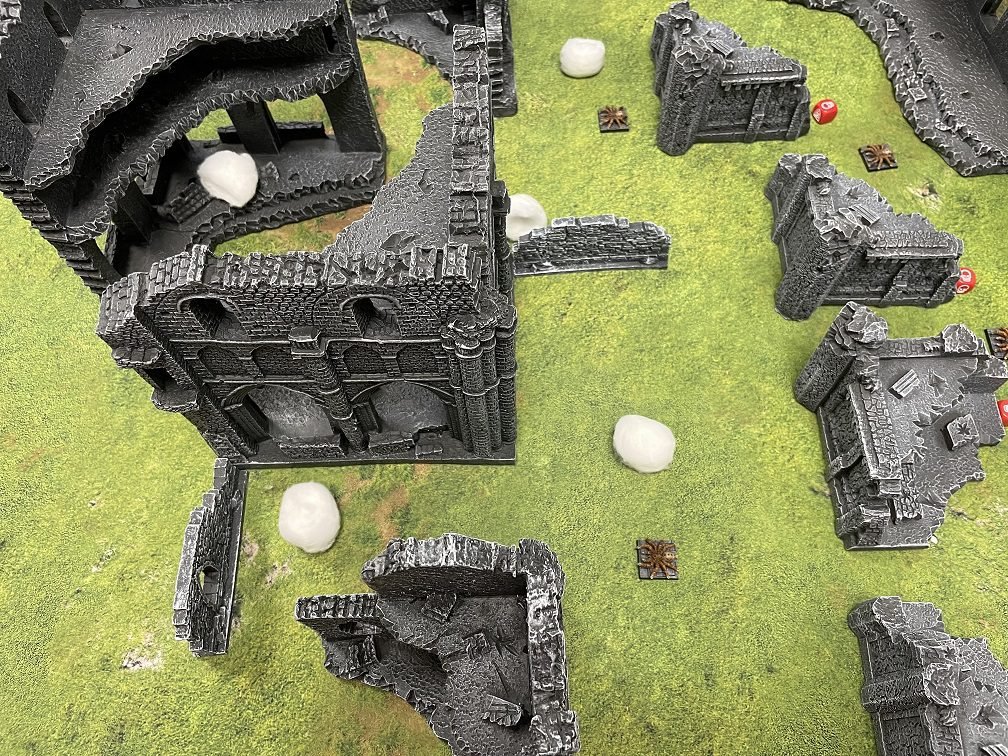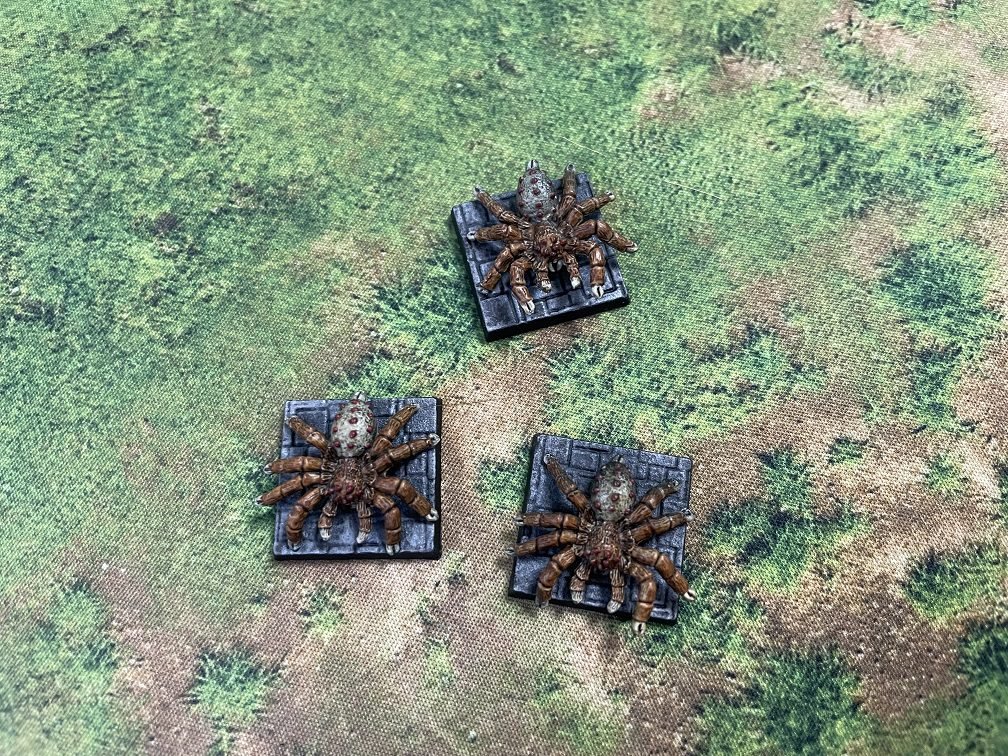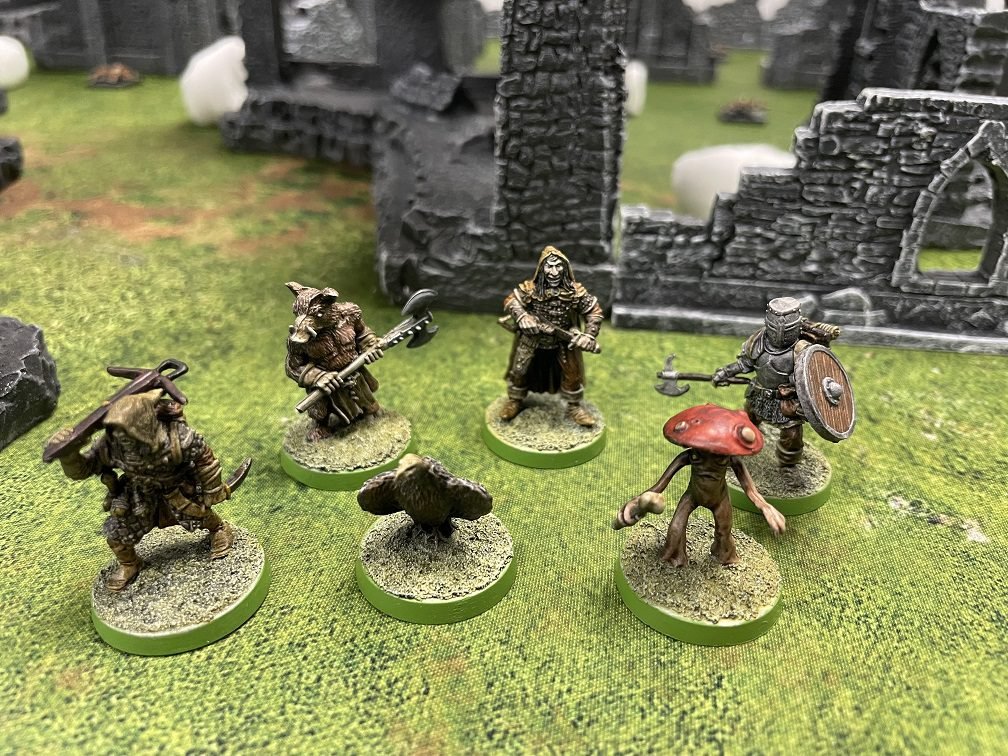Cheating, tacky, or clever? 2D neoprene terrain divides opinions amongst miniature hobbyists. But like almost everything else, there can be a place for it.

I remember one of the first games I played after returning to the hobby. In my newfound (newly discovered) enthusiasm, I’d quickly bought up some terrain. Included in this terrain were some trees. Trees, which, without a doubt, looked the part. But each time a hair on my arm brushed within 4″ of one of them, it would topple over.
This might’ve made for some cinematic gaming. Some massive hurricane or something like that. But in reality, it was just highly annoying.

Woodland creatures, Boarus and Goatsy
Tabletop Climate Change
My solution was an extreme one – climate change. Let’s never again game in a setting that’s environmentally conducive to growing trees. I’ve heard Felstad is nice at this time of year. And as for ‘The Infected Trees’ scenario in Rangers of Shadow Deep, let’s just play in the ‘Infected Ruins‘ instead.
The thing is, though, I still like trees and general greenery on the tabletop. I’m from that generation that flicked through the pages of White Dwarf looking at Space Marines and Orks fighting over a well-manicured golf course under a hazy blue sky.
Still, trees were something I’d put on the side for now and come back to in the future.
Then, I got myself a copy of Blood Moon, the Rangers of Shadow Deep supplement. One of the terrain recommendations was a pond. This isn’t something I currently own. Not exactly the hardest thing to make, I imagine. But I’m always cautious about starting scratch-built terrain projects as it takes me away from painting miniatures.

Grubb and Gunther go fishing
Enter, 2D Neoprene Terrain
I typed some words into my google machine for pre-made pond terrain, and up popped this Meadows 2D Terrain set from Gamemat.eu. As it happens, these Prague-based wizards are my favourite terrain company. I’ve got a lot of their pre-painted resin stuff and 4×4 neoprene battle mats already (a castle, a village, some gothic ruins). They had my attention, and now, they had my interest.
In this 2D terrain set, there were two ponds. If any terrain could be considered “acceptable” then it’s water features. But there were also mist clouds, rocks, hills, barriers, bunkers, buildings, and yes – trees.
I thought to myself, this is probably the best practical way to get some woods on the tabletop. Sure, it doesn’t look as visually striking, or, dare I say it, “realistic”. But having just played a game of Rangers of Shadow Deep using kid’s wooden toy blocks, I know that we’re more than capable of suspending our disbelief when needed.
So looking through this 2D neoprene terrain set (by the way, they have others too, “arctic” and “sands“, if you genuinely do want to abolish all greenery) I decided to jump in and add it to my collection. Now that I’ve had a good look at it, in-person, here are my overall thoughts.

Vinny sits on a wall. Best place for him, probably.
Cons of 2D Neoprene Terrain
- So, obviously, it’s not as “realistic” as 3D terrain
- I’m not convinced it works well for buildings – are minis on them, or in them?
- It might make line of sight and cover-related stuff less dynamic

Is Harald Half-Orc on the house, or in the house?
Pros of 2D Neoprene Terrain
- Creates an instant battlefield, quick to set up and tidy away
- Requires almost no storage space
- Highly cost-effective
- Perfect for rivers, ponds, and roads
- All the enjoyment of woodlands without knocking trees over
- You could actually deploy a full multi-based regiment in your woods, too

Fun Gus, lost in a cloud. Typically.
Summary
Like anything else in this hobby, you’ll find stuff that works for you, and stuff that doesn’t. Whether or not a 2D pond can float your boat (see what I did there?) will be entirely up to you. For me, it makes perfect sense for both water features and woodland. I think the misty clouds and bunkers are a cool idea, too.
I’m undecided on whether or not to embrace the hills. I don’t have any actual hill terrain though, so I’ll certainly give them a shot. I really don’t see myself using the buildings, but mainly because I already have the luxury of owning some good 3D stuff already.

Anyway, I hope that’s given you a few things to think about if you’re weighing up 2D neoprene terrain for your own collection. And if you do decide to take the plunge, the imaginary greenhouse gasses in your story world are sure to thank you for it.
At very worst, you’ll now have an excellent choice of mouse mats.













































